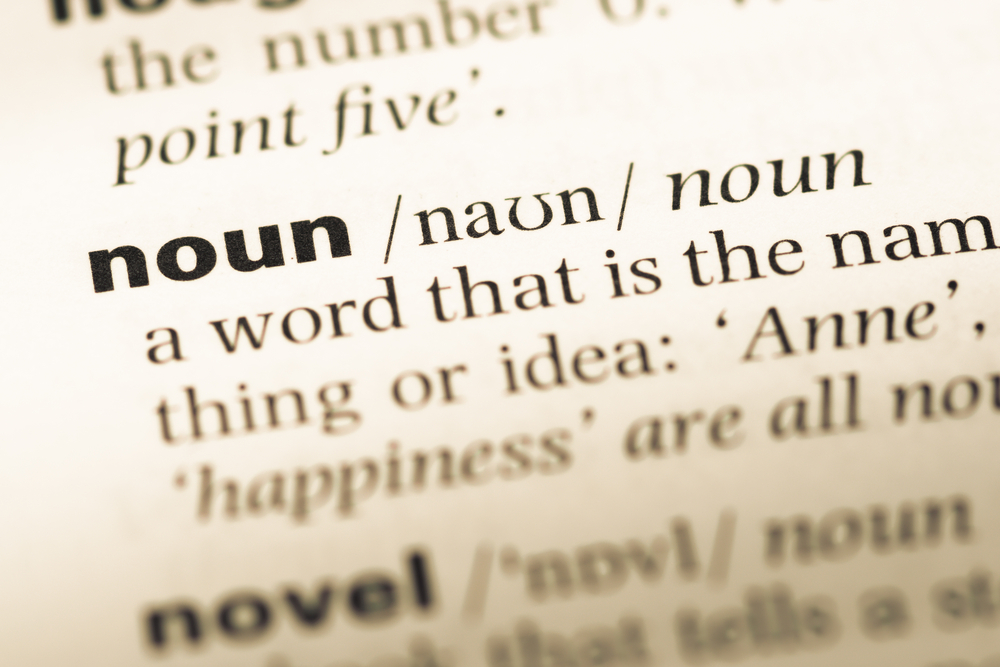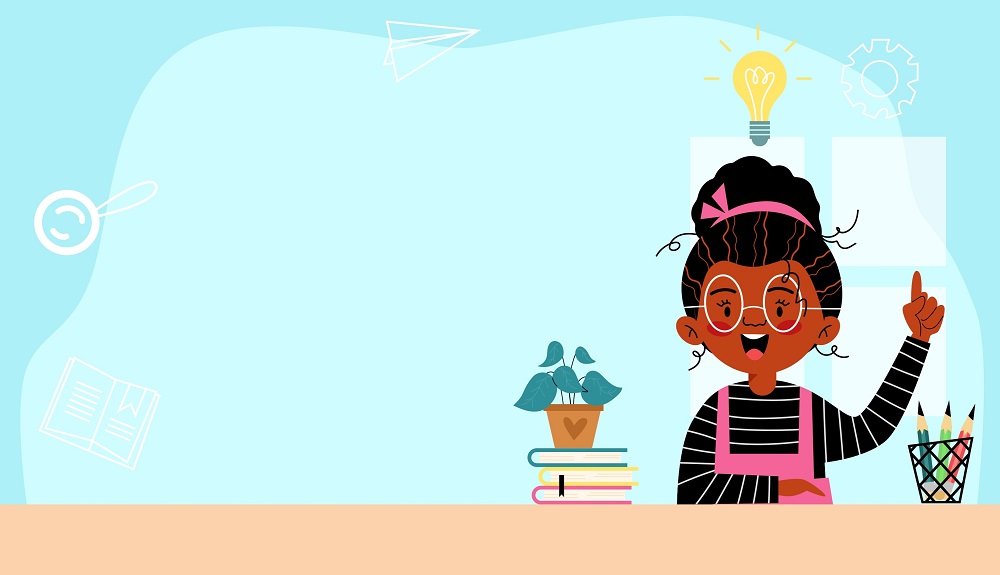Vocabulary Building Normal Worksheets for Ages 6-7 - Page 2
36 filtered results
-
From - To
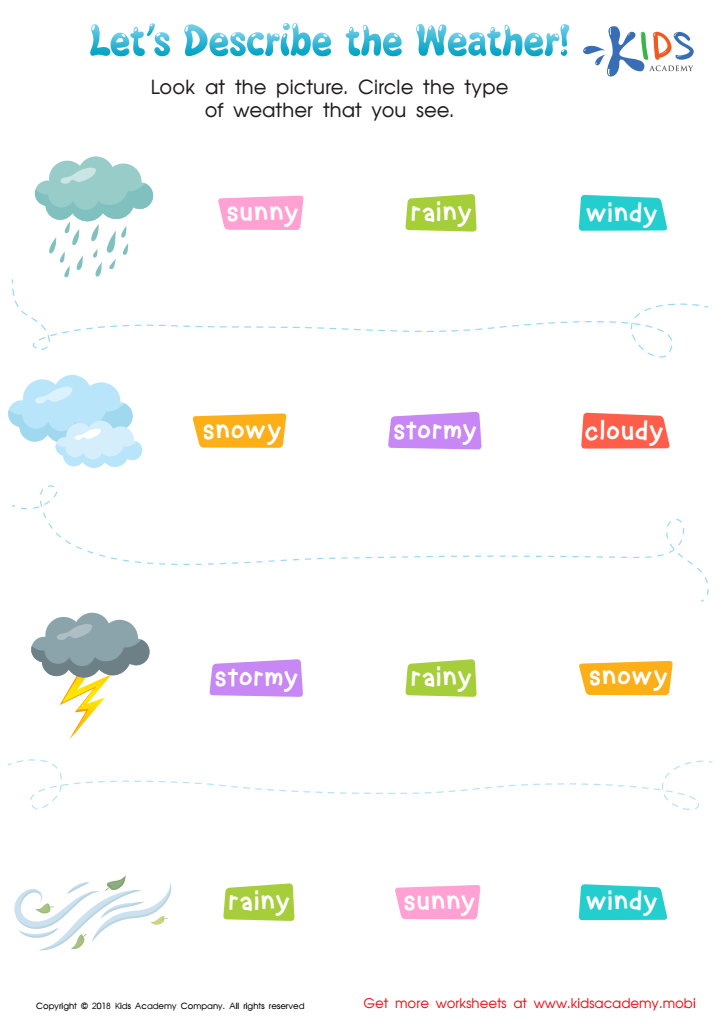

Let's Describe the Weather! Worksheet
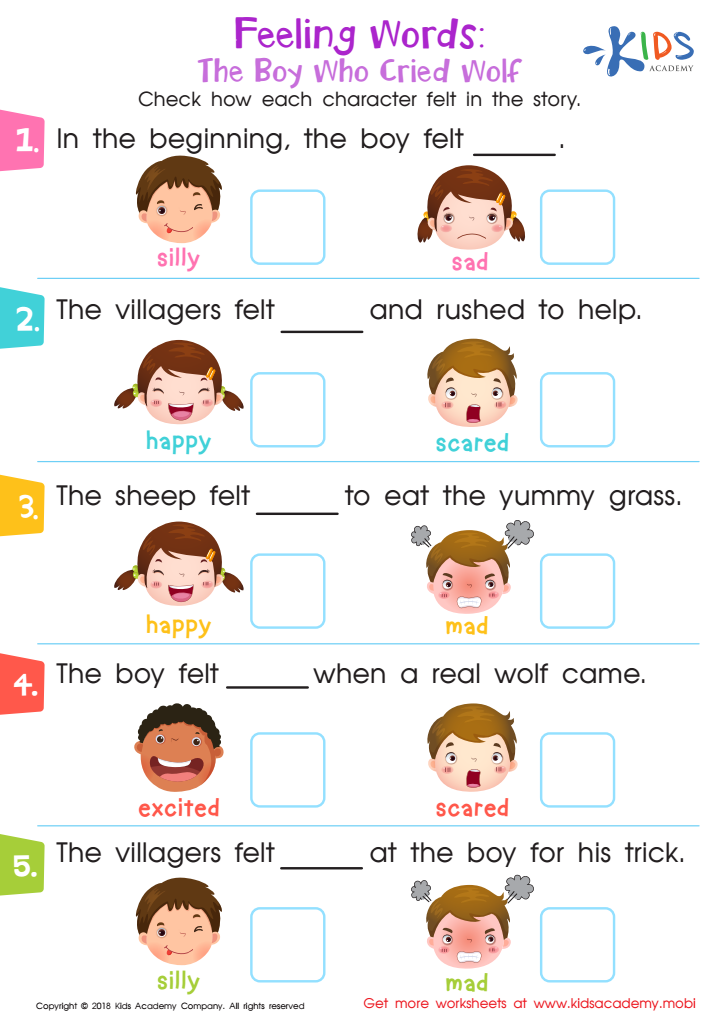

Feeling Words: The Boy Who Cried Wolf Worksheet
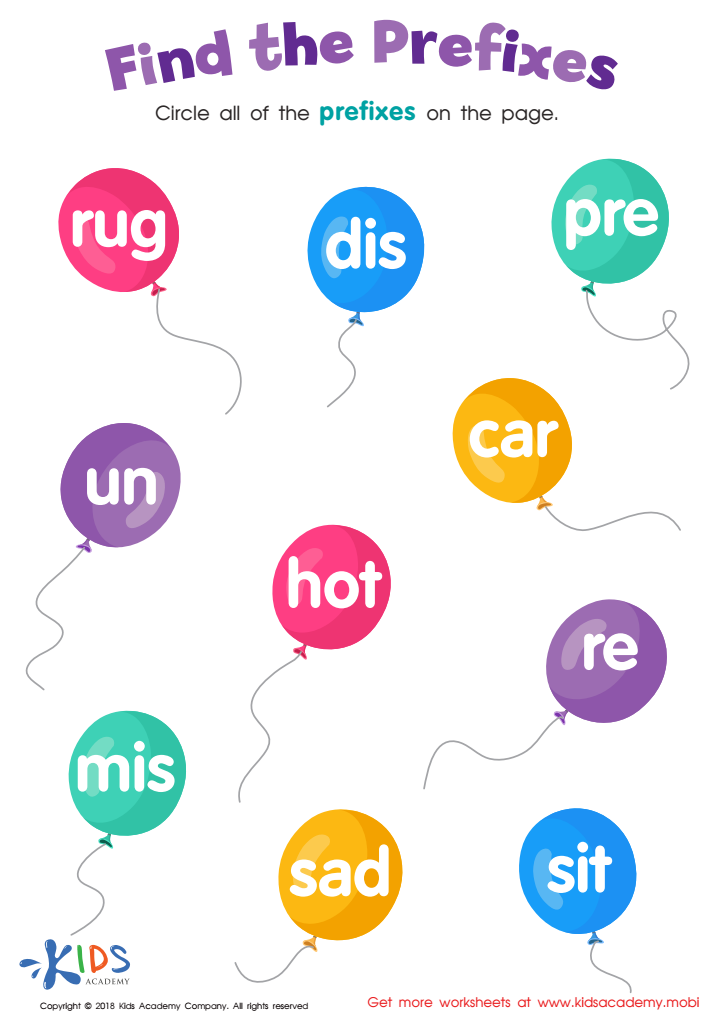

Reading: Find the Prefixes Worksheet
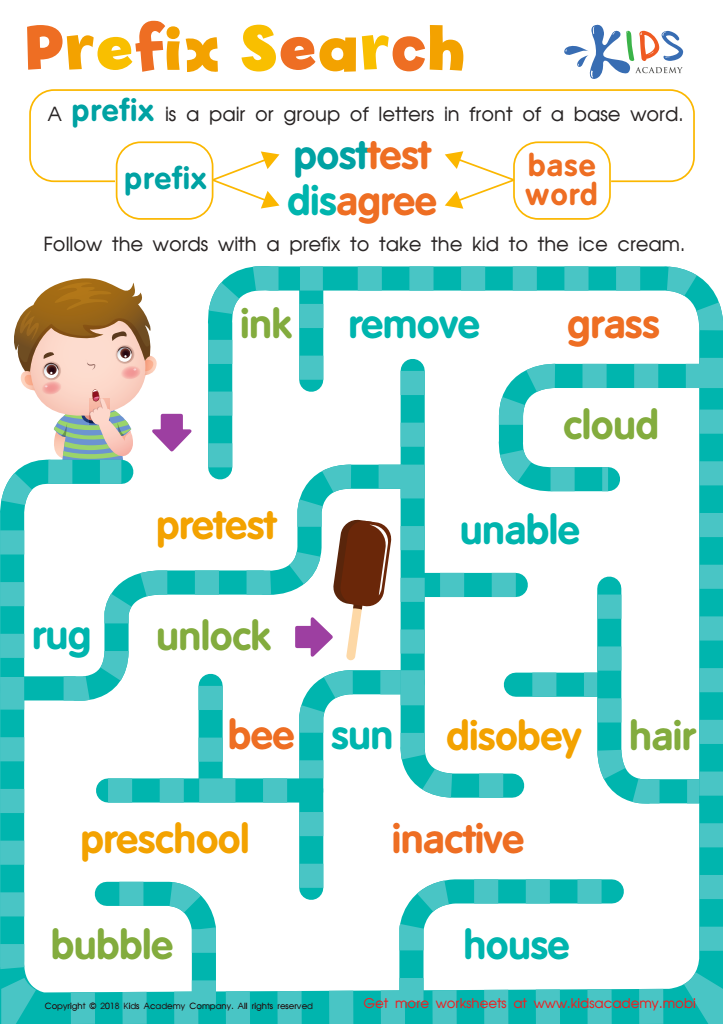

Reading: Prefix Search Worksheet
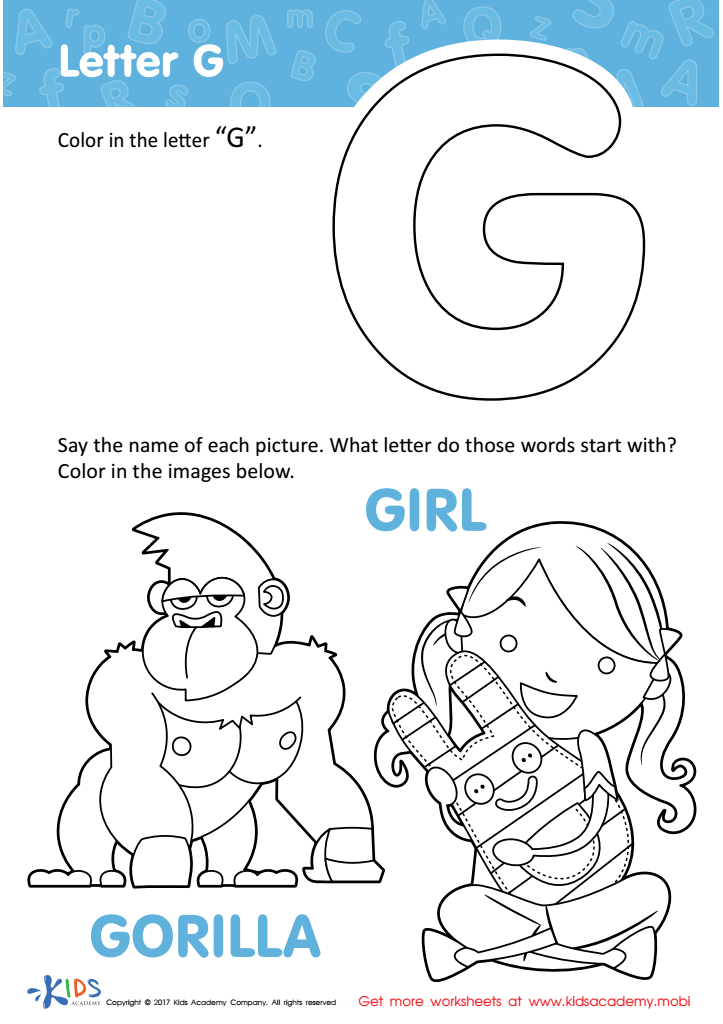

Letter G Coloring Sheet
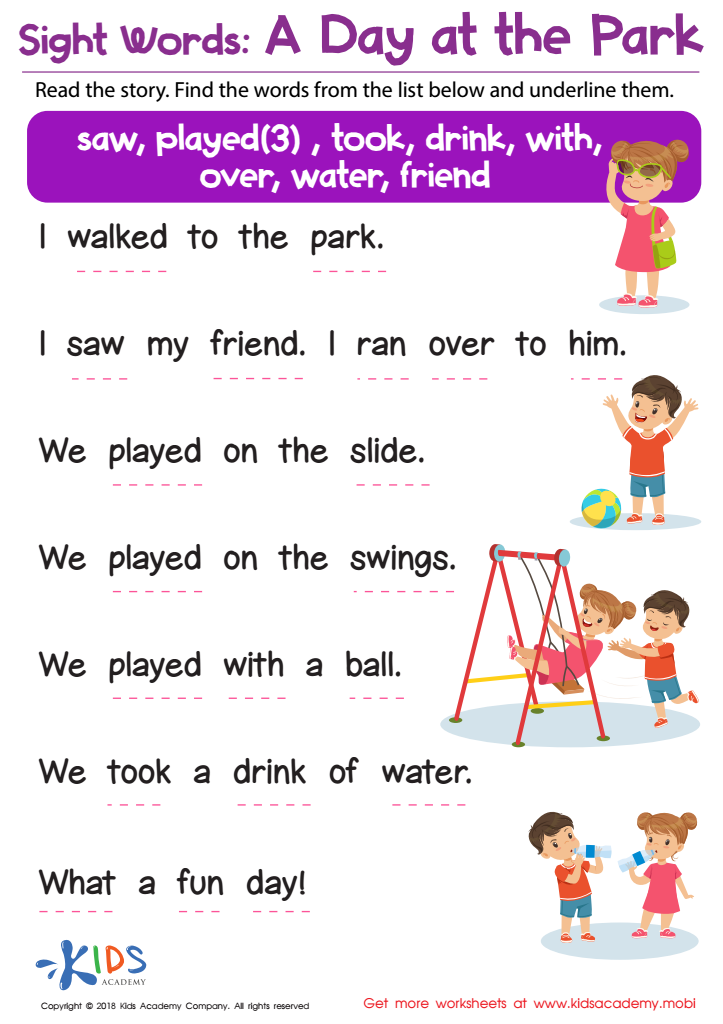

Sight Words: A Day at the Park Worksheet
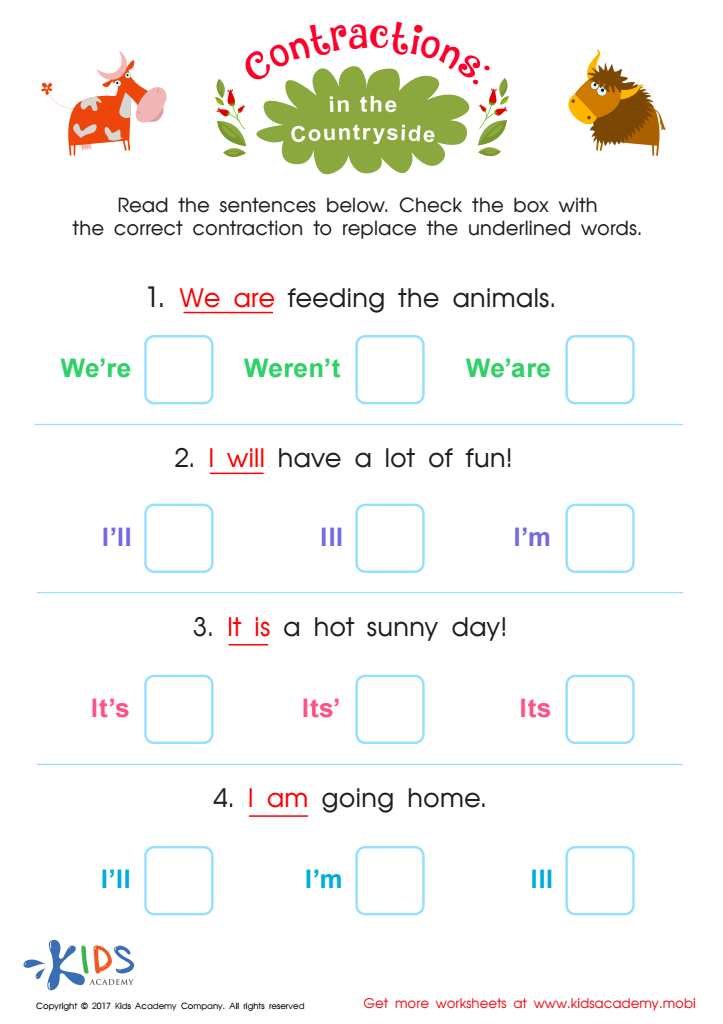

Contractions: In the Countryside Worksheet
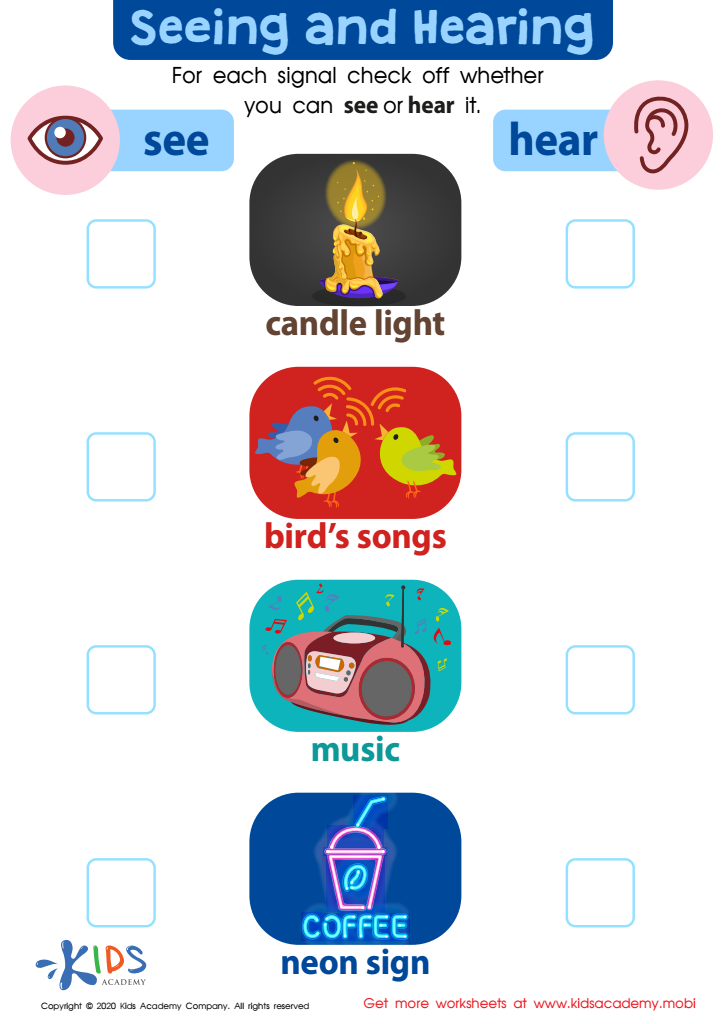

Seeing and Hearing Worksheet
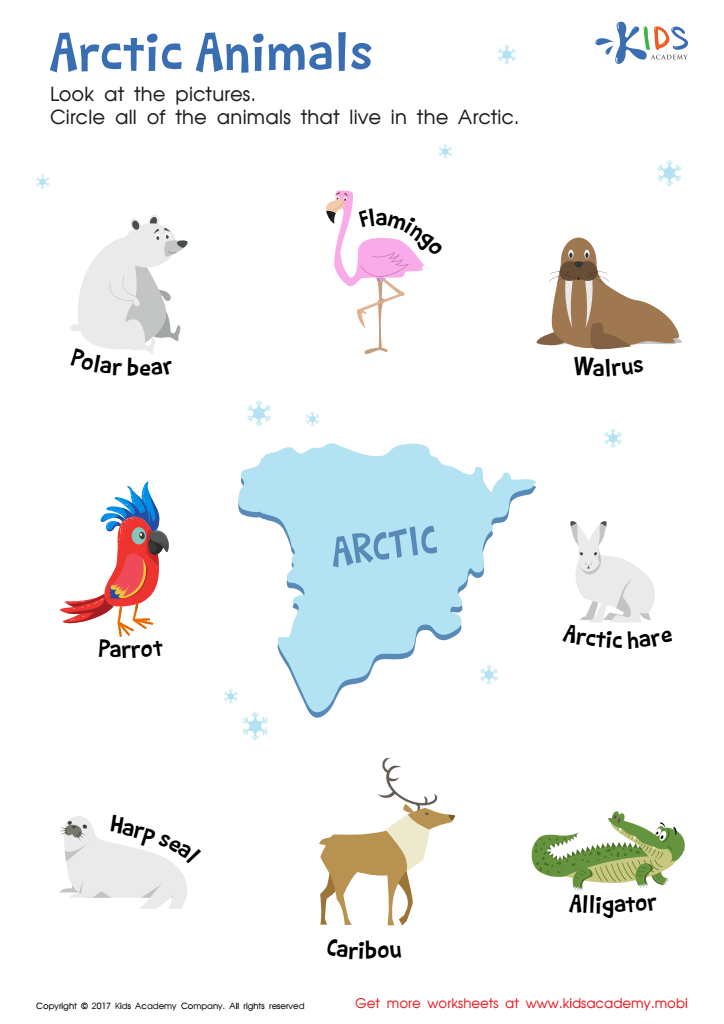

Arctic Animals Worksheet


Words with sound p Reading Worksheet
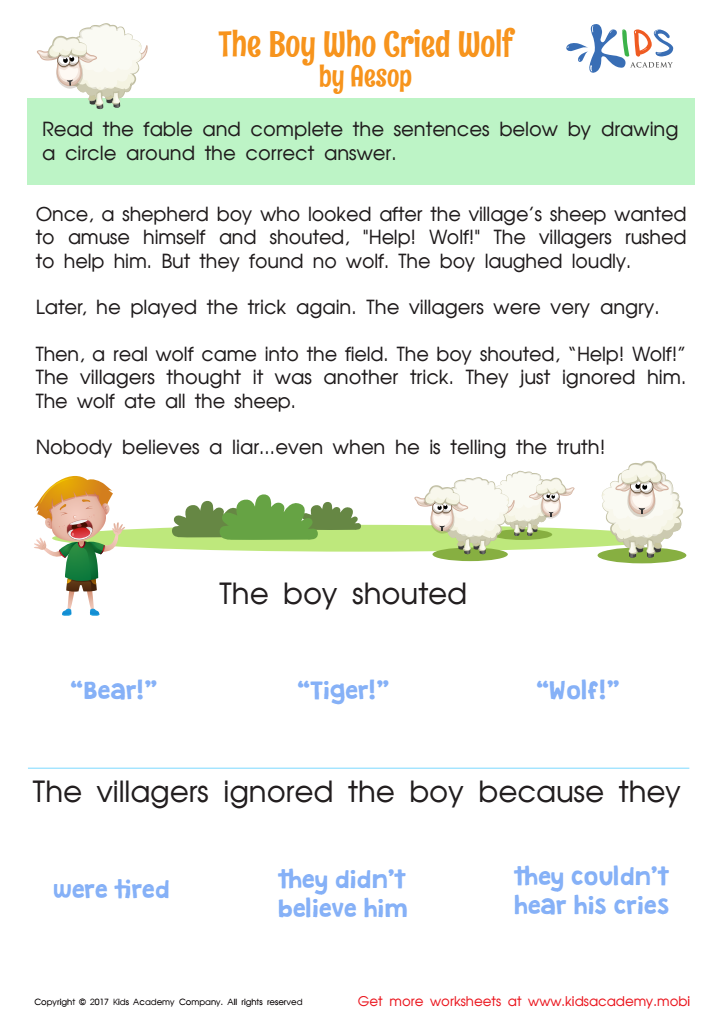

The Boy Who Cried Wolf Worksheet
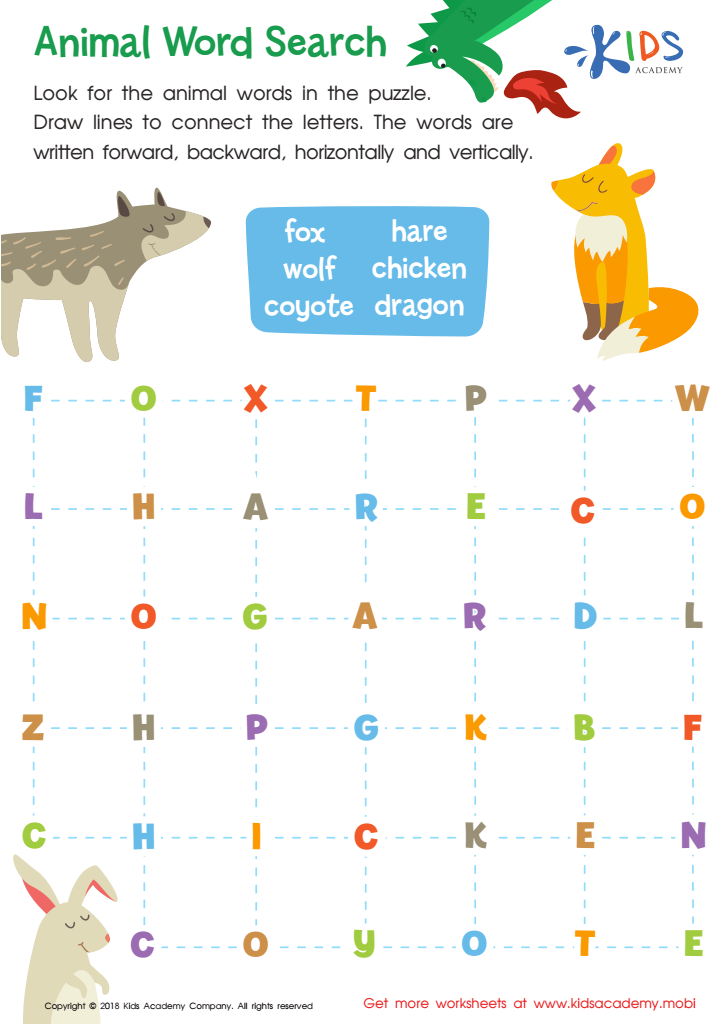

Animal Word Search Worksheet
Vocabulary building is crucial for children aged 6-7, as this stage marks a significant period in language development. During these early years, children experience rapid language acquisition, which directly influences their reading, writing, and overall communication skills. A robust vocabulary enhances comprehension and enables kids to express their thoughts and feelings more clearly.
Parents and teachers should actively engage in vocabulary building because it often forms the foundation for academic success. A strong vocabulary allows children to grasp new concepts and engage deeply with curriculum content, fostering critical thinking and enhancing literacy skills. Furthermore, children with a rich vocabulary are more likely to become enthusiastic readers and writers, setting the stage for lifelong learning.
Additionally, vocabulary acquisition is tied to emotional and social development. When children learn new words, they gain the tools necessary to interact effectively with peers, negotiate conflicts, and articulate their experiences, leading to improved social skills and self-confidence.
Ultimately, nurturing vocabulary development in young children not only equips them for academic achievement but also supports their interpersonal growth. By prioritizing vocabulary building, parents and teachers can create a positive, enriching environment that encourages communication and creativity in early education.

 Assign to My Students
Assign to My Students


